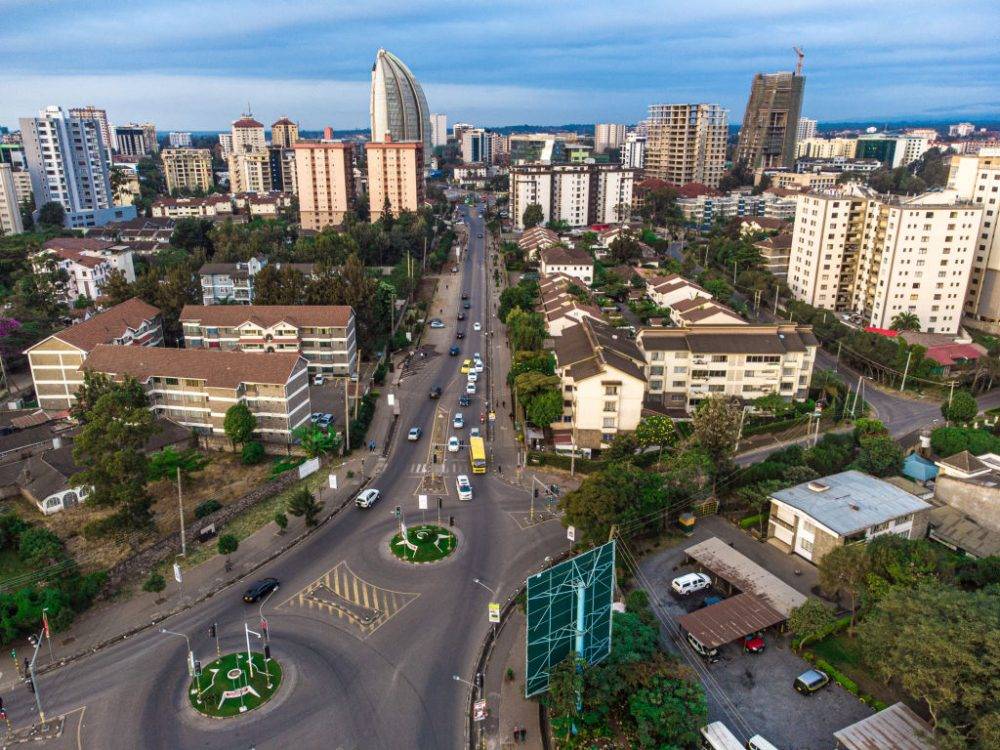
Aerial view of Nairobi Downtown. Nairobi. Kenya. Africa. (Photograph by: Leonardo Mangia/REDA&CO/Common Pictures Group by way of Getty Pictures)
Africa is at a turning level; with a GDP nearing $3 trillion, the continent’s financial and improvement potential is plain. Contained in that development is the burgeoning East Africa area the place we see nice potential for extra improvement.
The African Growth Financial institution Group (AFDB) notes that East Africa is about to develop at a projected 5.1% in 2024 and 5.7% in 2025. The projected development acceleration of 1.6% in 2024 from 3.5% in 2023 displays the anticipated sturdy financial efficiency of nations within the area, with seven economies projected to develop 5% or extra in 2024. In accordance with the Institute for Safety Research, the area contributed 14% in 2018 and 17% in 2022. That is anticipated to develop to a projected 29% by 2040.
The East African financial system has demonstrated outstanding resilience, buoyed by its diversification efforts, progressive spirit and collaborative mindset. This area has invested closely in infrastructure improvement via public-private partnerships. By way of the concerted infrastructure funding, a progressive transfer from conventional debt-led infrastructure tasks to a joint strategy that’s cognisant of all events. That is the easiest way to make sure improvement that finest serves the individuals who profit and use the infrastructure that’s constructed.
In a current instance of this collaborative strategy, Stanbic Financial institution Kenya and MiDA Advisors, introduced a partnership with actual property developer Acorn Holdings to facilitate a $700 million Kenya Shilling (KES) equal in long-term blended finance commitments for inexperienced, inexpensive pupil housing in Kenya. Upon approval, the transaction will comprise as much as $180 million dedication from america Growth Finance Company (DFC) and embrace elevating funds from Kenyan Capital markets as properly. The collaboration will outcome within the development of 35 licensed inexperienced housing tasks, creating about 48,000 new pupil beds over the following 10 years. The initiative will create an estimated 15,000 direct jobs and 35,000 oblique jobs.
Because the world seeks to transition to cleaner vitality sources, East African nations have been utilizing their wealthy pure endowments to harness renewable vitality to meet their rising vitality calls for sustainably. Kenya, Tanzania, Uganda and Rwanda have been on the forefront of creating photo voltaic and wind energy over the previous decade. It’s estimated that by 2050, clear vitality may generate greater than 26 million jobs in Africa.
Past East Africa, the continent will account for 11 of the world’s 20 fastest-growing economies in 2024, based on the AFDB. Actual GDP development for the continent is anticipated to common 3.8% and 4.2% in 2024 and 2025, surpassing projected world averages of two.9% and three.2% respectively.
This makes Africa the quickest rising area after Asia.
In an more and more fragmented world experiencing upheaval throughout geographies, the continent’s affect is rising as conventional powerhouses flip their eyes to rising markets. That is most notably marked by the African Union’s current entry into the Group of 20 nations — now the G21 — a grouping of nation and regional bloc members shaping worldwide financial cooperation.
Populated by the world’s youngest demographic, Africa boasts the most important free commerce space, lately punctuated by the African Continental Free Commerce Space (AfCFTA). This has been ratified in 30 nations throughout the continent. Africa additionally has huge mineral deposits and pure sources, positioning it favourably for a dominant function within the world vitality transition. This transition, depending on extractive industries, is marked via the expansion of different vitality options for electrical energy and the rising digital automobile market, which stands at $15.8 billion, and which is anticipated to develop to $21.4 billion by 2027, based on market analysis by Mordor Intelligence. Because the continent has grown, so too has the complexity of the necessities for providers. African start-ups reportedly raised about $1.5 billion in the course of the Covid-19 pandemic in 2020, greater than $4 billion in 2021, and an estimated $4.5 billion in 2022.
These are indicators that place Africa as the following development frontier with untapped potential and alternatives for buyers on the lookout for long-term diversified worth.
Hasan Khan is the Customary Financial institution Group’s head of company and funding banking, Africa.
